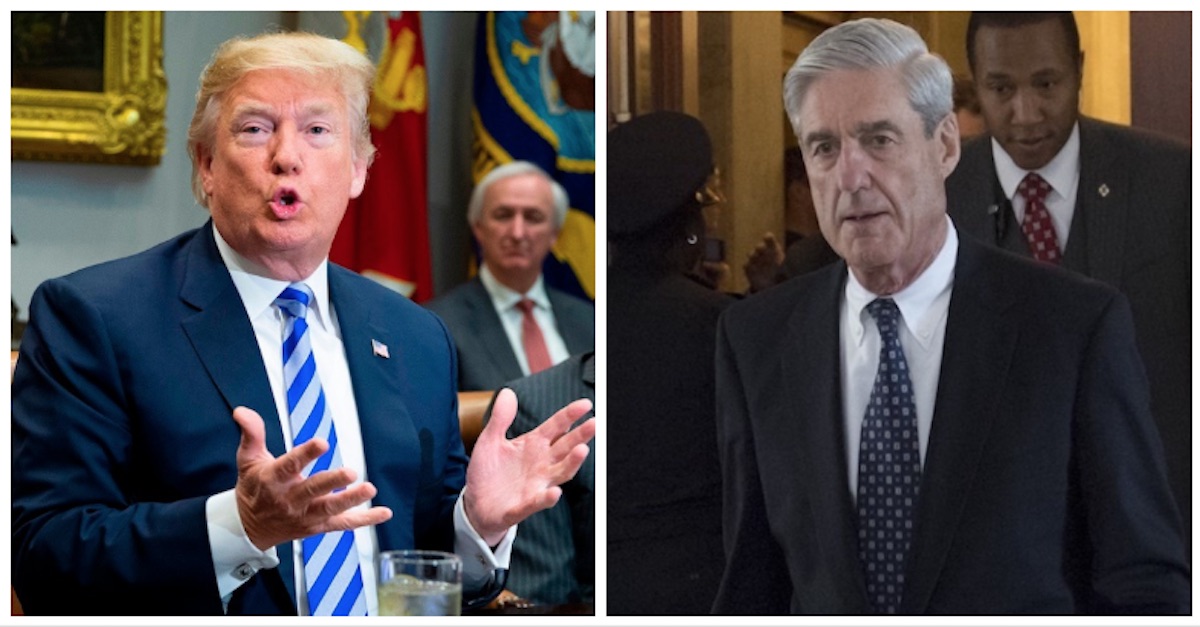
President Donald Trump discussed upcoming WikiLeaks document dumps with his former longtime advisor Roger Stone, according to former Trump 2016 campaign deputy Rick Gates. The revelatory allegation came during Tuesday afternoon testimony during Stone’s ongoing trial in the Southern District of New York (SDNY) on five counts of lying to federal investigators, and one count each of obstruction of an official proceeding and witness tampering.
Gates’s time on the stand was short-lived but potentially damning.
Recall: In mid-2016, a hacker or group of hackers allegedly accessed the digital infrastructure of the Democratic National Committee (DNC) and obtained a massive tranche of politically and personally embarrassing emails. Those alleged hackers operated under the handle “Guccifer 2.0” and are widely-believed to be affiliated with Russian intelligence–such allegations are documented in the report issued by former special counsel Robert Mueller.
WikiLeaks publisher Julian Assange announced in June that the release of those documents by his organization–they were released by a separate group called “DCLeaks” well before WikiLeaks released them–would be timed to coincide with the 2016 Democratic National Convention in an express bid to harm the candidacy of then-presumed Democratic Party standard-bearer Hillary Clinton.
During his testimony, Gates said he was in a car with then-candidate Trump while the latter was engaged in a phone call with Stone about those upcoming Wikileaks disclosures. According to a substantially-redacted page from the Mueller Report, Gates was in a Suburban with Trump on the way to New York City’s LaGuardia Airport sometime during “the late summer of 2016.”
Federal prosecutor Aaron Zelinsky, a former member of Mueller’s team, asked Gates what happened after Trump got off the line with Stone.
Gates replied: “He indicated more information would be coming.”
If true, Gates testimony is a direct contradiction of Trump’s written testimony provided to Mueller in late 2018.
Mueller asked Trump several questions about Trump’s communications with Stone and Stone’s knowledge regarding “forthcoming releases of information” from Wikileaks.
In response to that series of questions, Trump wrote:
I spoke by telephone with Roger Stone from time to time during the campaign. I have no recollection of the specifics of any conversations I had with Mr. Stone between June 1, 2016 and November 8, 2016. I do not recall discussing WikiLeaks with him, nor do I recall being aware of Mr. Stone having discussed WikiLeaks with individuals associated with my campaign, although I was aware that WikiLeaks was the subject of media reporting and campaign-related discussion at the time.
Lawyers promptly remarked on the testimony, saying it was evidence supporting the idea that the 45th president had lied under oath.
“Trump denied in writing and under oath to Mueller any recollection of ever discussing WikiLeaks with Stone or being aware of Stone discussing WikiLeaks with the campaign,” tweeted national security attorney Bradley P. Moss. “Gates testified he was in the car with Trump when he Trump talked to Stone about it.”
Trump nemesis George Conway, who formerly led the conservative Federalist Society while at Yale Law, and who is married to White House advisor Kellyanne Conway, was a bit more brief in his estimation of Gates’s testimony.
“Perjury,” he tweeted while quote-tweeting Moss’s original take.
Attorney and Lawfare executive editor Susan Hennessey called this detail from Gates — that two secret service agents also witnessed a Trump-Stone July 22 call taking place days after WikiLeaks’s first email dump — “incredibly significant.”
“This is incredibly significant. Not only does it demonstrate that Trump had advance knowledge of Wikileaks releases of hacked emails, it also shows additional witnesses who can confirm that the president gave false written answers to investigators in violation of the law,” she said.
House Democrats have long believed that Trump lied to Mueller in his written responses to the former special counsel. Gates’s on-the-record testimony is an affirmation of that long-held position. House Democrats still hope to obtain an unredacted version of the Mueller Report, including still-secret grand jury materials.
Additional aspects of Gates’s testimony are likely to be viewed as harmful to the Trump White House as well–potentially more grist for the fast-acting impeachment mill in the U.S. House of Representatives.
Gates testified that the brain trust of Trump’s 2016 campaign believed the Wikileaks revelations were a “gift” and described the campaign’s reaction to the announcement of additional Clinton-related disclosures as “one of happiness.”
Specific members of Trump’s inner circle were also potentially implicated in the WikiLeaks disclosures scandal.
Just after Assange’s anti-Clinton announcement, Stone allegedly told Gates: “I need contact info for Jared,” an apparent reference to presidential son-in-law Jared Kushner.
Additionally, Gates told federal prosecutors that he assumed any information emanating from Stone viz. Wikileaks was not yet fit for public consumption. In other words, the “gift” was still under wraps.
Gates’s Tuesday testimony tracks with the aforementioned redacted portion of the Mueller Report noted by Courthouse News reporter Megan Mineiro.
That largely-blacked-out passage notes that Gates told Mueller’s investigators “the Trump Campaign was planning a press strategy, a communications campaign, and messaging based on the possible release of Clinton emails by WikiLeaks.”
That information has long been well-known. The new factor here is a somewhat familiar passage in the annals of presidential scandal: What exactly did the president know, and when did he know it?
[Images via Alex Edelman-Pool/Getty Images, Saul Loeb/AFP/Getty Images]